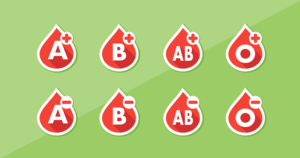If you suffer from hemophobia, the fear of blood, you know how debilitating and overwhelming it can be. The mere sight or even thought of blood can cause intense anxiety and panic attacks. You may avoid medical procedures, faint at the sight of needles, or experience intrusive thoughts that interfere with your daily life.
However, there are effective treatments available to help you overcome your fear and live a more fulfilling life.
Exposure therapy and hypnosis are two interventions that have been proven to be effective in treating hemophobia. Exposure therapy involves gradually exposing yourself to the feared stimulus (in this case, blood) in a controlled environment until your anxiety subsides. Hypnosis works by helping you achieve a deep state of relaxation where suggestions for positive changes can be made to your subconscious mind.
In addition to these interventions, there are also medications that can help alleviate symptoms of anxiety and lifestyle changes you can make to manage your condition more effectively.
Understanding Hemophobia and Its Symptoms
 Feeling anxious and queasy at the sight of blood? That’s a common symptom of hemophobia, and understanding its physical and emotional effects is key to overcoming it.
Feeling anxious and queasy at the sight of blood? That’s a common symptom of hemophobia, and understanding its physical and emotional effects is key to overcoming it.
Hemophobia, also known as blood phobia, is an intense fear or aversion to seeing or thinking about blood. It affects approximately 3-4% of the population, with women being more commonly affected than men.
The causes of hemophobia are not yet fully understood, but some studies suggest that genetics may play a role in its development. Traumatic experiences involving blood, such as witnessing a bloody accident or undergoing a medical procedure that involved bleeding, can also trigger hemophobic reactions.
Coping mechanisms for dealing with hemophobia include avoiding situations where one might come into contact with blood and seeking support from friends and family members who understand the condition. Support groups can also be helpful for those struggling with hemophobia.
Effective interventions for treating hemophobia include exposure therapy and hypnosis. Exposure therapy involves gradually exposing the patient to increasingly stressful situations involving blood until they become desensitized to their fear response. Hypnosis aims to calm the patient’s anxiety by inducing a relaxed state of consciousness using guided imagery techniques.
Other treatments such as cognitive-behavioral therapy (CBT) and medication may also be effective for some patients with severe symptoms.
Cognitive Behavioral Therapy
Oh boy, here we go again with the Cognitive Behavioral Therapy. It’s like the go-to solution for anything these days. And why not? CBT techniques have been proven to be effective in treating various mental health conditions, including hemophobia.
One of the main goals of CBT is to help individuals overcome avoidance behaviors that contribute to their phobia. Through CBT, you’ll work with a therapist who will guide you through a series of sessions aimed at identifying and challenging negative thoughts and beliefs about blood or injury that contribute to your fear or anxiety. Your therapist may use exposure therapy as part of this process, where they gradually expose you to situations related to blood or injury until your anxiety decreases. This is done in a safe and controlled environment so that you can learn how to manage your symptoms effectively.
Another technique used in CBT is cognitive restructuring. This involves challenging irrational thoughts and beliefs by replacing them with more rational ones. By doing this, it helps reduce feelings of anxiety and fear associated with blood or injury-related situations. With continued practice, you can learn how to reframe your thinking when confronted with these triggers and eventually overcome your hemophobia completely.
Virtual Reality Exposure Therapy
You can experience virtual reality exposure therapy, where you’ll be immersed in a simulation of blood or injury-related situations to help you overcome your fear.
Immersive simulations allow you to experience the situation without any real harm coming to you, which can help desensitize you to the phobia. This form of therapy is becoming increasingly popular due to its effectiveness.
Virtual reality exposure therapy can also incorporate therapeutic games that help promote relaxation and reduce anxiety during treatment. These games are designed with specific goals in mind, such as helping patients learn how to regulate their breathing or heart rate during exposure sessions.
The use of these games has been shown to increase patient engagement and overall success rates. Studies have shown that virtual reality exposure therapy is an effective intervention for hemophobia.
It not only helps patients overcome their phobia but also provides them with a safe environment where they can confront their fears and develop coping mechanisms. While it may not work for everyone, it’s certainly worth considering if other forms of treatment have been unsuccessful.
Medications for Hemophobia
Some medications can help alleviate the symptoms associated with hemophobia, providing a possible solution for those who struggle with overwhelming feelings of fear or distress. While exposure therapy and hypnosis are effective alternative treatments, medication may be necessary in certain cases. It’s important to consult with a mental health professional to determine what treatment options are best for you.
There are several types of medication that may be prescribed for hemophobia, including antidepressants, anti-anxiety medications, and beta-blockers. Antidepressants such as selective serotonin reuptake inhibitors (SSRIs) and tricyclic antidepressants (TCAs) can help regulate mood and anxiety levels.
Anti-anxiety medications like benzodiazepines can reduce feelings of panic and fear. Beta-blockers work by blocking the effects of adrenaline on the body, which can help manage physical symptoms like rapid heartbeat and shaking.
It’s important to note that while these medications can be effective in treating hemophobia, they do come with potential side effects. These may include dizziness, nausea, headaches, fatigue, dry mouth, and sexual dysfunction. Some individuals may also experience withdrawal symptoms if they stop taking their medication abruptly.
As with any medical treatment plan, it’s crucial to discuss both the benefits and risks with your healthcare provider before beginning any medication regimen. Medication is just one option for managing hemophobia symptoms alongside other interventions like exposure therapy or hypnosis. With proper guidance from a mental health professional and support from loved ones, those struggling with this phobia can find relief from fear-based responses that have held them back in life.
Lifestyle Changes and Self-Help Techniques
If you’re struggling with hemophobia, there are lifestyle changes and self-help techniques that can help manage the symptoms of fear and distress.
One effective way to alleviate anxiety is through relaxation techniques such as deep breathing exercises or progressive muscle relaxation. By focusing on your breath or relaxing each muscle group in your body, you can calm your mind and reduce physical tension.
Mindfulness practices like meditation or yoga can also be helpful for managing hemophobia. These practices involve bringing awareness to the present moment without judgment, which can help reduce anxious thoughts and sensations.
Regular mindfulness practice has been shown to decrease symptoms of anxiety and depression, making it a valuable tool for those struggling with hemophobia.
In addition to these techniques, it’s important to take care of your overall well-being by getting enough sleep, eating a healthy diet, and exercising regularly. These lifestyle habits have been shown to improve mental health and reduce stress levels.
By incorporating self-care into your daily routine, you can build resilience against anxiety triggers like blood or needles that may cause distress in individuals with hemophobia.
Can hemophobia be completely cured with any of the mentioned interventions?
Looking to completely cure your hemophobia? While exposure therapy and hypnosis have been found to be effective in reducing symptoms, it’s important to note that long term effectiveness and success rates vary for each individual.
There is no guaranteed cure for hemophobia, but with the help of a qualified mental health professional and continued effort towards treatment, it is possible to manage and overcome your fear of blood.
Remember that progress may take time and patience, but don’t give up hope – many have successfully conquered their phobia with the right support.
Is exposure therapy painful or uncomfortable for the patient?
When undergoing exposure therapy, your comfort level is important to the success of the treatment. While it may be uncomfortable at times, exposure therapy is designed to help you gradually face your fear and become desensitized to it.
The therapist will work with you to create a plan that is tailored to your specific needs and pace. Studies have shown that patients who complete exposure therapy have reported high levels of satisfaction with the treatment and significant reductions in their anxiety symptoms.
It’s normal to feel nervous or hesitant about this type of therapy, but remember that your therapist will be there every step of the way to support you in overcoming your fear.
How long does it typically take for medication to alleviate hemophobia symptoms?
When it comes to treating hemophobia, medication can be an effective option for alleviating symptoms. However, the duration of treatment can vary depending on several factors such as dosage and individual response to the medication.
It’s important to note that medication alone may not be enough to fully address hemophobia and other interventions such as exposure therapy or hypnosis may also be beneficial in reducing relapse rates.
Overall, while medication can certainly play a role in managing hemophobia, it should always be used in conjunction with other forms of treatment for optimal results.
Are there any potential risks or side effects associated with hypnosis for hemophobia?
There are potential drawbacks to using hypnosis as a treatment for hemophobia, and it’s important to ensure that your therapist is qualified to provide this type of therapy.
While some people may find hypnosis helpful in reducing their fear and anxiety around blood or needles, others may not respond well or experience unwanted side effects such as headaches or dizziness.
Additionally, it’s essential that your therapist has proper training and certification in hypnotherapy to ensure the safety and effectiveness of the treatment.
It’s always a good idea to ask about your therapist’s qualifications before beginning any new type of therapy.
### Can a person with severe hemophobia still benefit from lifestyle changes and self-help techniques, or is more intensive therapy necessary?
If you’re someone who suffers from severe hemophobia, it’s understandable to wonder if lifestyle changes and self-help techniques can help alleviate your symptoms. While these techniques may provide some relief, it’s important to note that they may not be enough on their own for those with severe cases.
That being said, incorporating breathing exercises and cognitive behavioral therapy into your routine could greatly benefit your overall treatment plan. These non-invasive interventions have been proven effective in managing anxiety disorders, including hemophobia.
However, it’s important to consult with a mental health professional to determine the best course of action for your individual needs.
You now know that Cognitive Behavioral Therapy and Virtual Reality Exposure Therapy are effective interventions for managing hemophobia. You’ve also learned about medications and self-help techniques that can complement these treatments.
Ironically, after reading all of this information, you may feel more anxious than before. But don’t worry, knowledge is power!
Armed with these tools, you can take control of your fear and anxiety towards blood or injury. So go ahead, face your fears head-on (figuratively speaking), and start living a happier and healthier life today!





